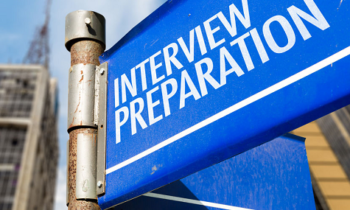How do you leave a lasting impression on your next interview? You land an interview for an incredible professional-level position you discovered online or through your network. What a relief to receive the interview call for this opportunity! The door is officially open and your foot is officially in the door. Now it’s time to walk across the threshold and make a great impression. How do you deliver a strong, solid interview? Incorporate these ten crucial points, when preparing for your next interview, to make a lasting impression to land that great job:
1. People hire people they like, for any level position, so be your genuine self and be likable. No matter how qualified you are, if the hiring manager feels like they cannot work with you daily, you will not get the job. Period. I have seen very qualified professionals lose a job to a moderately qualified person, simply because there was a stronger personal rapport between the moderately qualified person and the hiring manager.
2. Stop trying so hard. This may be a controversial statement. This does not mean “don’t be serious” or “be aloof about the job.” It means stop trying to “be” what they want and simply be who you are. You want to be a fit with the prospective organization as the person you are and not the person you are trying to be.
3. See that the job fits you and what you want—don’t change yourself to try to fit in with the company. What makes a good employment match is the employee taking responsibility for making sure the job is a good fit for them, in addition to the company making sure the employee is good for their organization. An employee just taking a job, only to discover it is not a good fit, is a large part of why some hiring decisions don’t work—it is not always the employer’s fault.
4. Discover what problems the employer is having and outline how you can solve them. You can determine the challenges the company is experiencing through your interview research. Apply your knowledge by having ideas of how you can rectify these problems and devise solutions to reduce or eliminate these issues. In this manner, you show your value of how the company will benefit in hiring you.
5. Show that you can apply your company research. This is a continuation of #4. Many people can look up a company on Google; that is not the goal in doing company research—you will not be tested to see if you researched the company. What matters and sets you apart as an applicant is how you apply that research. Know the company’s product line? Outline how you may make improvements when asked. Familiar with the company’s financials? Ask if monies may be better spent in another area. Knowledgeable about competitors? Determine how certain service offering positioning can yield more marketshare. The key is to show you can use deductive reasoning to make a difference in performance with the information you learned.
6. Talk about information you’ve already mentioned in your CV and cover letter. It’s safe to assume that employers have received dozens of applications, and just because they read yours before doesn’t mean they remember it all. Discussing these points verbally helps put a face to a name, making you all the more memorable. Also, nothing is more annoying to a recruiter than hearing from an applicant, “It’s in my resume.” applicants have actually said this on a job interview, that’s why I bring it up.
Bonus: Learn how to overcome the biggest hurdle in your job search — yourself. Check out my new Guide on the Job Landing Mindset.
7. Be specific. Every employer has heard the line “I work well with others.” What they haven’t heard is how you oversaw a team that led a rebranding campaign of your former company. These details set you out from the rest of the pack. Be prepared to tell the story surrounding your achievements and challenges.
8. Stay positive. Nobody wants to hear about why you hate your current job or despised a previous employer. They want to hear why you think this job is a good fit for you. Connect the dots for the hiring manager during the interview, helping them see how your talents and expertise will mesh well with the solutions they need within the organization.
9. Say thank you, and not just at the end of your interview. A follow-up reiterates your interest in the position. And while we may not live in the Stone Age anymore, a handwritten note sent via express mail is better than an email shot through Gmail for some prospective employers. Referencing specific points from your interview reinforces what separates you from the crowd.
10. Last but not least (in fact, this should come first), allot more than the right amount of time on your schedule. Clearing your schedule around the time of the interview can help clear your head and keep you focused. There’s no guarantee that an interview will last twenty minutes or sixty and if you’re worried you might be late to your next appointment, the distraction will be evident.
You don’t have to play a guessing game to have a good interview; you just need to dig into your research and be the best you that you can be. Follow these tactics, in addition to good old fashion pre-interview research, and pretty soon the rest of you will be opening that door each day headed to your new job.





Comments are closed.